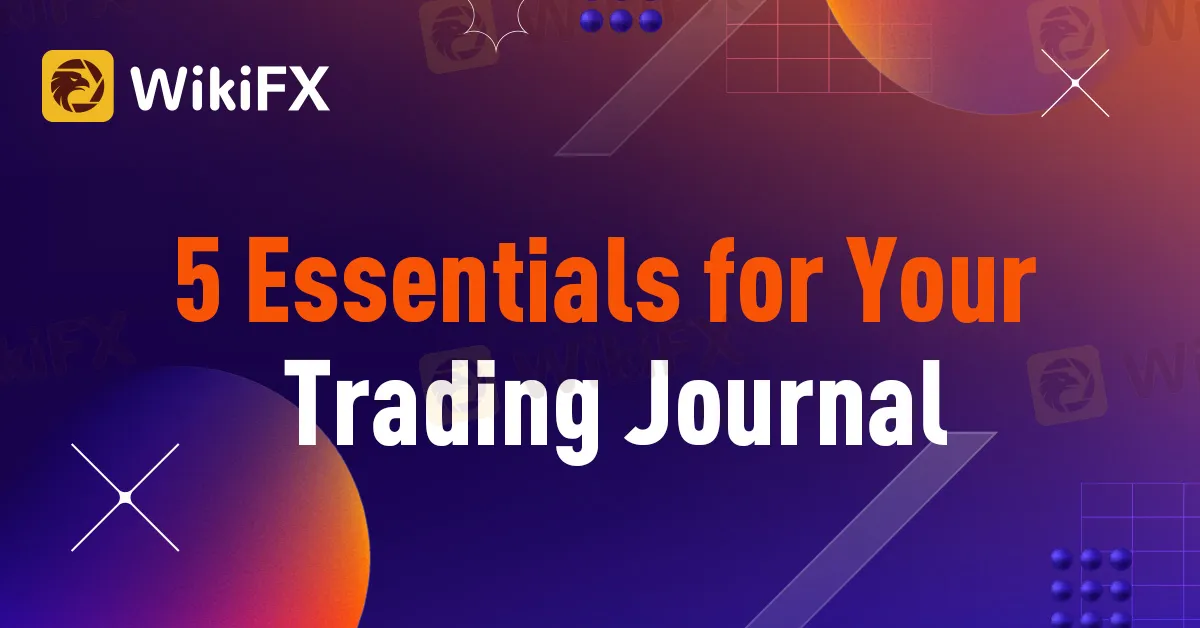简体中文
繁體中文
English
Pусский
日本語
ภาษาไทย
Tiếng Việt
Bahasa Indonesia
Español
हिन्दी
Filippiiniläinen
Français
Deutsch
Português
Türkçe
한국어
العربية
5 Essentials for Your Trading Journal
Abstract:You keep a record of everything you think and do prior to the transaction, during the deal, and following the trade. Whatever your trading approach or style, trading is a performance skill.

You keep a record of everything you think and do prior to the transaction, during the deal, and following the trade.
Whatever your trading approach or style, trading is a performance skill.
Your success depends on your ability to evaluate the market environment, develop a strategy or trading approach, execute that plan successfully, and be lucky.
Since there are several factors that contribute to success, you must list them all in order to assess your strengths and weaknesses.
What to Record in Your Professional Journal
For traders, that entails writing down:
Who you are and why you trade foreign exchange. You must understand who you are, your lifestyle concerns, and the reasons behind your actions in order to choose the best trading strategy for you.
viewpoints and philosophies of the market. By doing so, you can frame and comprehend the markets, decide how to behave, and control the danger to your account.
the market observations. Even while every day in the market is unique, you may still benefit from some “tendencies” or “behaviors.” You may identify these “tendencies” by diligent and persistent observation, and you can then develop methods around them. Additionally, you'll be aware of the situation and adapt as necessary if the surroundings changes.
trading lost opportunities and errors. The market moving against your trade is just as harmful to your performance as mistakes and lost chances. To prevent making the same errors again, you should keep track of your blunders in your diary. Examples include closing trades too soon, failing to act on legitimate setups, inputting the incorrect entry levels or position sizes, etc.
performance information. Your forex trading success may be measured into concrete statistics in many different ways. This presents a straightforward, accurate view of how you're doing. The stats are truthful, just like Shakira's hips. And occasionally, a dose of reality might give you the wake-up call you need to step up your game!
In all honesty, this seems like a lot.
So here is what we believe to be the absolute minimum to help you get started. Our list of essential components for a trading journal.
We just want to make clear that this is what we think should be in a trading strategy before we release our list.
We just offer this list so you may have a better sense of what to put in your own plan; you are not required to stick strictly to the items on it.
The Minimum: 5 Record-Keeping Requirements for Your Trading Journal
All right, here are the five components that any forex trading notebook “must-have” have:
Possibility of exchanging
Entry trigger Size Position
Trading regulations Trade retrospective
Again, it's your choice.
It serves as your trade diary.
You should personalize your trade notebook anyway you think fit, just like you would with your own Dota 2 character.
Keep in mind that keeping a forex trading notebook is for your own profit. So, make a note of what you believe would be most beneficial to you!

Disclaimer:
The views in this article only represent the author's personal views, and do not constitute investment advice on this platform. This platform does not guarantee the accuracy, completeness and timeliness of the information in the article, and will not be liable for any loss caused by the use of or reliance on the information in the article.
Read more

Big News! UK 30-Year Bond Yields Soar to 25-Year High!
Following the successful auction of 30-year government bonds by the UK, the yield on 30-year bonds surged, reaching its highest level in 25 years. This increase reflects growing concerns in the market over the government's fiscal policies and large-scale debt issuance.

Discover How Your Trading Personality Shapes Success
WikiFX’s latest event not only helps you reflect on your 2024 investment journey but also introduces a unique opportunity to uncover your trading personality. Understanding your trading personality is key to thriving in the financial markets. It shapes your decision-making, risk tolerance, and overall trading strategies. Whether you are an analytical trader who relies on data, an intuitive trader who trusts instincts, or a cautious trader who values safety over risk, knowing your traits can improve your performance and decision-making.

Double Trouble for Stocks and Forex: What's Next for the Indian Rupee?
Recently, the Indian rupee has faced another round of selling, with the exchange rate against the US dollar briefly falling below the 86 mark, hitting a new record low of 86.006.

Indonesia officially joins the BRICS countries
Indonesia's decision to join the BRICS group will not only enhance economic cooperation within BRICS countries but is also expected to have a profound impact on global trade, investment, and the currency system.
WikiFX Broker
Latest News
Attention! Goldman Sachs Cuts Gold Target to $2910
Inflation Rebounds: ECB's Big Rate Cut Now Unlikely
Carney \considering\ entering race to replace Canada\s Trudeau
High-Potential Investments: Top 10 Stocks to Watch in 2025
US Dollar Insights: Key FX Trends You Need to Know
Why Is Nvidia Making Headlines Everywhere Today?
Discover How Your Trading Personality Shapes Success
FINRA Charges UBS $1.1 Million for a Decade of False Trade Confirmations
Pepperstone Sponsored the "Aston Martin Aramco Formula One Team"
ACY Securities Integrates MetaTrader 5 to Enhnace Copy Trading Service
Currency Calculator






